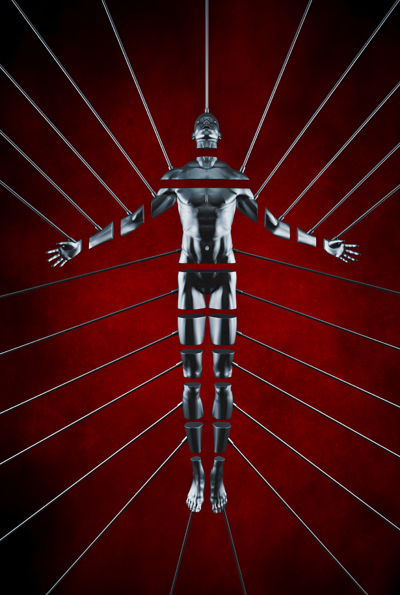
|
When I was growing up, the thrust of many popular books in nonfiction, science fiction, and movies was the unrestricted growth of the global population.1 And we had the rising populations of China, India, Africa, and South America to prove it. Supposedly, human population would expand indefinitely, until we were packed shoulder-to-shoulder as in a crowded elevator.2
What we have seen since then—but perhaps not yet absorbed at a publicly conscious level—is that population growth in technologically advanced, highly educated, Western-oriented countries tends to level off and then decline. The shorthand version is that people who have a good life, plenty to eat and drink, interesting work and the free time to enjoy themselves, the benefits of modern medicine, and access to modern birth control along with the cultural mindset that supports its use, don’t automatically keep having one child per couple every eighteen months or so during a woman’s fertile lifetime. You need that kind of birth rate if you’re running an agrarian society, where most families tend to be physically isolated and experience a high rate of infant mortality. In the modern world, people just don’t need a lot of surviving children to help with the farm work. And modern women aspire to be something more than brood mares.
I can see this trend in my own family and the people around me, all highly educated with access to modern medicine. My mother and father had two sons, one gay and one in a childless marriage, net result: no replacement in the third generation. My mother had a brother and a sister; the sister was in a childless marriage; the brother had two daughters, who both married and between them bore a total of three children, net result: sub-growth replacement. My father had a sister, who married and had two children; they each married and bore two children; net result: generational replacement, but not enough for positive growth. Of the people I know, most are either childless or, if married, have one or two children. I know of only one person who is a member of a big family, six children, but his siblings have either two or one child or none; net result: not enough for positive growth.
The same story could be told across the educated middle class of America, as well as in Europe, parts of South America, and in Japan. India is still growing. Africa is still growing. And China … is a special case: their disastrous One Child policy, which allowed for abortion based on sexual selection, in a culture that vastly favors male children over females, doomed the succeeding generation to an overwhelming supply of young men without access to marriageable young women. China’s population is predicted to crash in a couple of generations.3
America and Europe are making up for the decline in their educated, advanced population by admitting aliens and “guest workers” from other countries. The United States draws them from Central and South America. The United Kingdom draws them from former British colonies like India, Pakistan, Kenya, and Jamaica. Western Europe draws them from Eastern Europe and the Middle East. For a generation or so, these population additions will bring their agrarian-based cultural instincts and their fertility rate with them. They will provide a generation of support and service workers that the educated middle class is no longer supplying. But by the third generation these “aliens” will become citizens, acculturated, educated, technologically dependent, and they will lower their birth rate accordingly.
And in the high-growth areas like India and Africa, technological advances—which are easily transported and tend to create wealth wherever they land—will create new generations of relatively comfortable, relatively educated people with access to good medicine, birth control, and the popular culture to use it.
Right now, the planetary population stands at about seven billion. Various projections take that up to perhaps nine billion within a generation or two. But if trends in technology and literacy continue as they are currently headed—always allowing for negative feedbacks, planetary disasters, and extraterrestrial intervention—that nine million may be the peak. China’s population alone stands at a billion three hundred million, but their projected collapse would take them back to about five hundred million. That’s still a lot of people, but it’s also a sobering decline in population that will have a devastating impact on an economy geared to serve more than twice that number.
Declining populations are aging populations, because the old people have all that good medicine to keep them alive, and technologically advanced societies provide social services and transfer payments to keep them comfortable. But those services and payments, let alone the medical expertise, all require a working population of younger people to support them. Right now, that would look like a recipe for disaster: querulous old folks wanting support and services, and rebellious young folks not willing to work eighteen hours a day to provide it—with the net result of economic and social collapse.
But I see another trend at work. Ever since the beginning of the Industrial Age, we have replaced transportation and production systems based on human and animal muscles with machinery based on fossil fuels and steam power, and then with internal combustion and electric motors. Add, in the last generation, computerized information systems and communications, and the rise of “smart” machines. And soon, in the near future, we will bring on individual machines and complex systems guided by artificial intelligence.4
It has been at least two generations since we needed to employ human ditch diggers with shovels—except, maybe, in archeology—when we had backhoes that can do the work of ten men. We no longer need mindless sets of hands to assemble our cars, trucks, refrigerators, and other durable goods piece-by-piece by hand. And soon we won’t need legions of lawyers, accountants, and technicians to maintain the flow of information and business transactions when self-programming systems can do it faster and more reliably. The future is not only mechanized and computerized, but it will also be intelligent.5
Technology is doing away with both the unskilled labor of ditch diggers and, eventually, the skilled labor of knowledge workers. That will leave the survivors relatively free to pursue their personal interests and hone their artistic and creative skills. Humans will always need and crave the personal element—innovation, experimentation, and surprise—in our lives, our entertainments, our cooking, and our sciences. We will pay people to be our entertainers and storytellers, our craftworkers and chefs, and our researchers and inventors. But we’ll leave the physically wearing and mentally numbing work to the machines, where it belongs.
And the political and economic structures envisioned to serve a massive and growing world population—more social control, more distributive scarcity, more government intervention; less freedom, fewer choices, less room—will give way to a more relaxed, more aspiring, more gracious lifestyle. People will count and be valued as individuals rather than as cogs in a machine or, worse, as pests on a dying planet. Or that is my hope.
The intersection between population declines and technological advancements suggests to me a coming Golden Age—at least for those of us who have the children who will survive to enjoy it. And always, of course, so long as a nuclear war, asteroid impact, or extraterrestrial invasion does not take us back to the Stone Age.
1. See, for example: Paul Ehrlich’s and David Brower’s non-fiction The Population Bomb and Harry Harrison’s science-fiction Make Room! Make Room!, which became the basis for the movie Soylent Green.
2. Of course, as I learned in a college course about predicting the future, any prediction that extends a current trendline indefinitely becomes immediately suspect. Every system includes both positive and negative feedbacks. And all trends go in cycles. Nothing is forever.
3. See, among others, this analysis from the World Economic Forum.
4. If your notion of “artificial intelligence” is a human-scale mind with an active personality and opinions—such as Skynet, “deciding our fate in a microsecond”—think again. The reality is going to be expert systems capable of analyzing data in greater volumes and at greater depths and speeds than any human mind, with the capability for pattern seeking and self-programming in response to discovered conditions. You will be able to talk to it, give it verbal instructions, and receive reports and information. But it will not ever be your friend—or your enemy.
5. And there goes your Marxist “labor theory of value.” The future will also be capital intensive, with the question being “Who owns the machines?” and “What is the rate of return on their investment?” rather than who gets paid to work and sweat and think and drudge.
